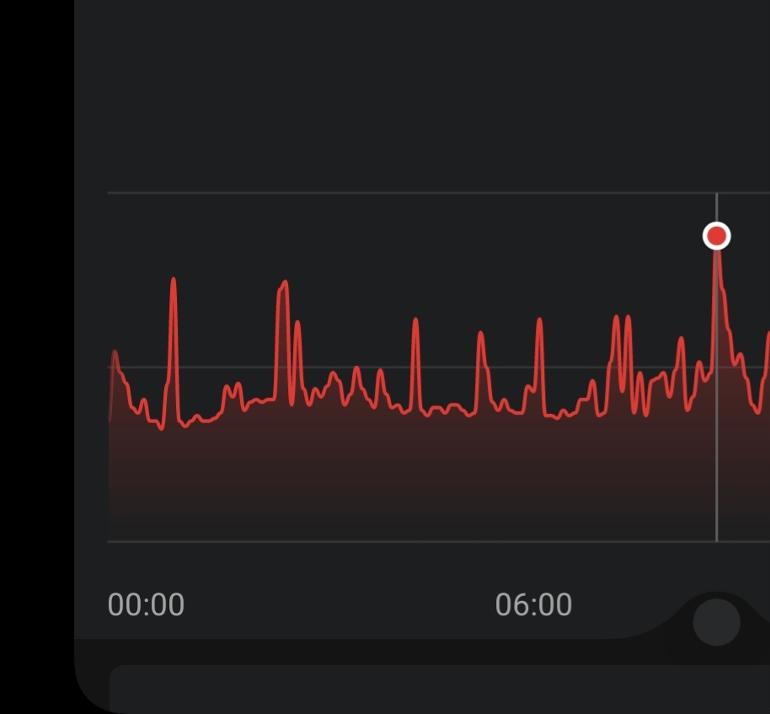Hi guys.
I see on my Amazfit GTS3 smart watch that every night I have a couple of short heart rate spikes as you can see on the picture.
I have PAF but didn't have an episode for almost a month (as far as I know) and it would be extremely unlikely that my afib episodes occur only during sleeping and in such short periods, further more without me feeling it.
Another thing is, I'm suspecting that I have some form of sleep apnea but I still didn't do a test in the clinic. I do snore but my girlfriend never noticed that I'm choking or gasping for air. So I'm not sure about apnea or even if it could produce those spikes.
Could it be just me moving about during sleep and sensor having few glitches? It's not the most expensive one but it has fairly good reviews about the accuracy.
The spikes you can see till 6am are basically all around 80-90bpms. otherwise my resting rate is around 45-50. The big spike at the end is when I was already awake so don't mind that.
I'm still confused about all the other types of disorders like VES, SVES, PACs, Ectopics and frankly wouldn't know the difference if one of them hit me. I know how afib episode feels and mine is just irregular beat mainly below 130 bpms and no other symptoms but with a large anxiety toll afterwards.
Am I looking too much into it with the watch readings? Does anybody have experience with this? Sometime I think I shouldn't even bought the damn thing with my overthinking modus.
